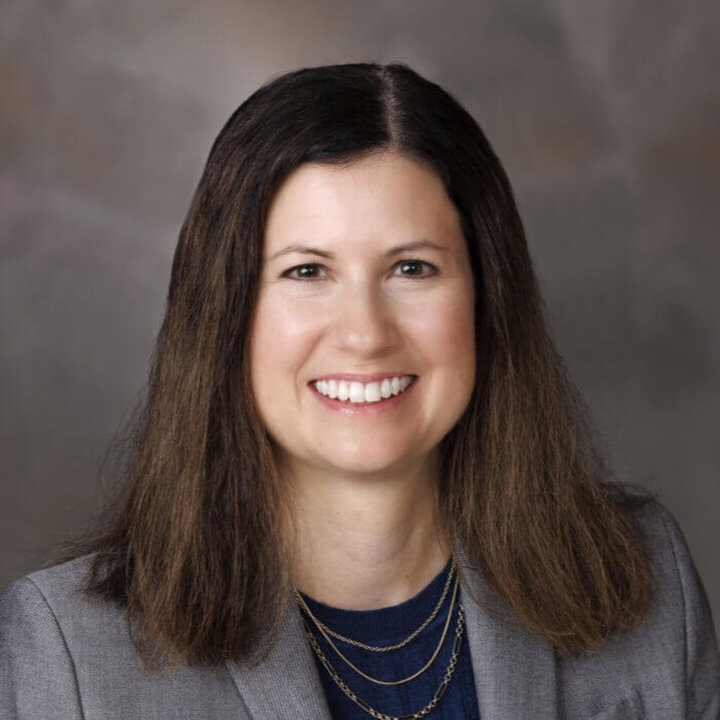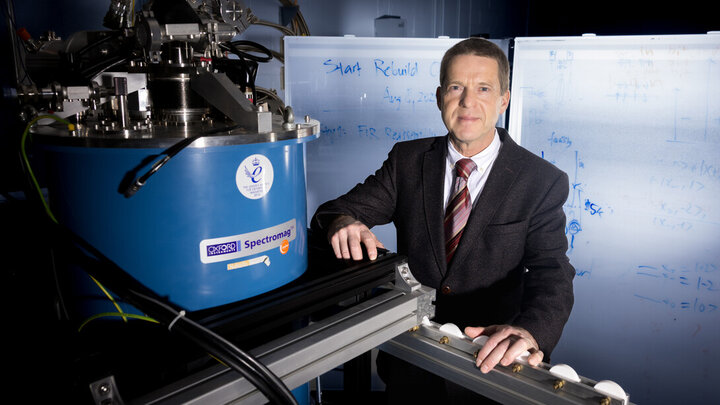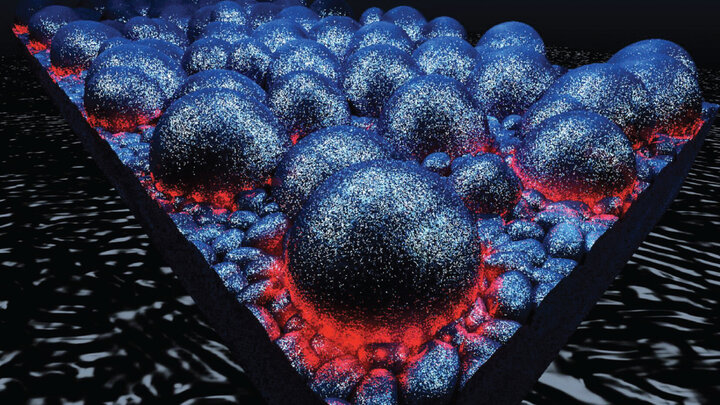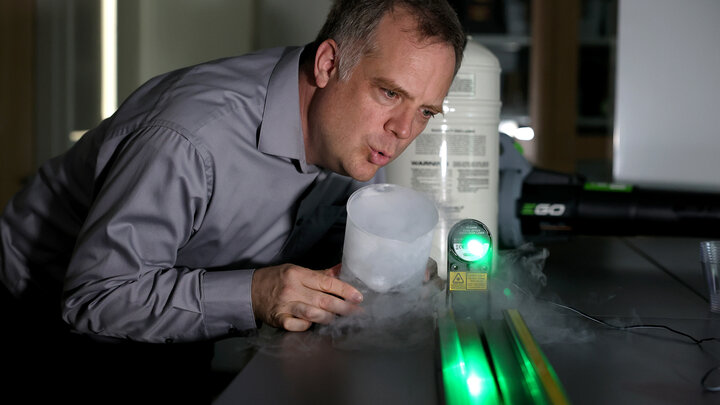This article was originally published in the "Local View" section of the November 16, 2025, edition of the Lincoln Journal Star.

For decades, the longstanding partnership between the University of Nebraska–Lincoln and the National Science Foundation has driven scientific discovery and innovation in Nebraska — strengthening not only our state, but the nation’s global competitiveness, economic vitality, national security and quality of life.
This year, the National Science Foundation celebrates its 75th anniversary. In honor of 75 years of federal support and collaboration, I am offering a local view that showcases how Nebraska faculty, students and entrepreneurs are leading in their fields thanks to this strong federal partnership.
UNL faculty researchers across many disciplines — including physics, agriculture, engineering, mathematics and education — receive NSF support to pursue groundbreaking research in digital technology, food and agriculture, health care, national security and much more.
A team of Nebraska physicists, recognized among the best in the world, was chosen to lead operations of a detector located at the European Organization for Nuclear Research, known as CERN, in Switzerland. The instrument is critical for recording data generated from the Large Hadron Collider, the world’s largest, most powerful particle accelerator. Experiments conducted at CERN generate technical knowledge that has led to countless innovations, including new cancer treatments, improved medical imaging, better weather forecasting, digital solutions to combat financial fraud and information about materials best equipped to withstand long-duration military missions.
NSF funding also supports UNL food and plant scientists working to advance agriculture. Their knowledge and expertise benefits Nebraska’s ag producers while increasing the state’s prosperity and competitive advantage in a global marketplace.
A UNL team leads the U.S.-based portion of a multinational collaboration with Finland to advance sustainable production of nutritious food and improve food availability for a growing population. The project engages industry partners to ensure practical solutions. Another UNL team conducts research to improve crop resilience to cold temperatures, which could expand when and where crops can grow, with the goal of increasing food production.
Less-populated states like Nebraska benefit tremendously from grants awarded through NSF’s Established Program to Stimulate Competitive Research program. EPSCoR is designed to boost research competitiveness and capabilities in certain jurisdictions.
EPSCoR currently supports a 20-member team of Nebraska faculty who are advancing discovery in emergent quantum materials and technology. Quantum science is a current national priority and critical to maintaining U.S. global competitiveness in fields such as medical technology, national defense, banking security and information technology, including in computing and artificial intelligence.
EPSCoR funding has helped build statewide research capacity across quantum and other fields, ensuring that UNL researchers have the necessary support to make scientific contributions that also advance national priorities. These grants enable UNL to invest in highly specialized equipment, which also is made available to private industry for their research and development needs.
NSF funding also has been a major catalyst for helping UNL faculty launch their research careers. Since NSF established the Faculty Early Career Development Program in 1995, 109 UNL faculty have received CAREER awards, placing UNL among the best of the Big Ten and the nation. These awards support many projects of interest to Nebraskans. A structural engineer, for example, is leveraging a CAREER award to determine how steel grain bins perform in the face of natural disasters, such as wind storms, and provide research-based recommendations to update construction standards.
NSF is also a significant partner in supporting K–12 and higher education programs across Nebraska. As a mother of two school-aged boys who have experienced the hands-on opportunities, the summer camps offered by University of Nebraska State Museum, to learn about science from UNL faculty, I also have a long history of offering NSF-funded training opportunities for Nebraska’s K–12 teachers, with the goal of boosting students’ learning. Furthermore, all NSF grants awarded to UNL have provided important learning opportunities for Husker students.
As a research administrator steering UNL’s research enterprise, and as a Nebraska resident and mom, I am profoundly grateful for the trusted partnership between UNL and NSF — one that has supported the career development of university faculty scientists and students, afforded unique hands-on experiences, and promoted scientific discoveries and innovations that strengthen our national economy and security, and enriched STEM education in K–12 and beyond.
As federal spending is carefully considered, I urge that the impact of federally funded research, including that made possible by NSF, remains elevated as critical for furthering global competitiveness, economic vitality, security and quality of life in the great state of Nebraska and across our nation. Imagine the stories Nebraska will have to celebrate in its partnership with NSF after another 75 years.
Jennifer Nelson is interim vice chancellor for research and innovation at the University of Nebraska–Lincoln.



